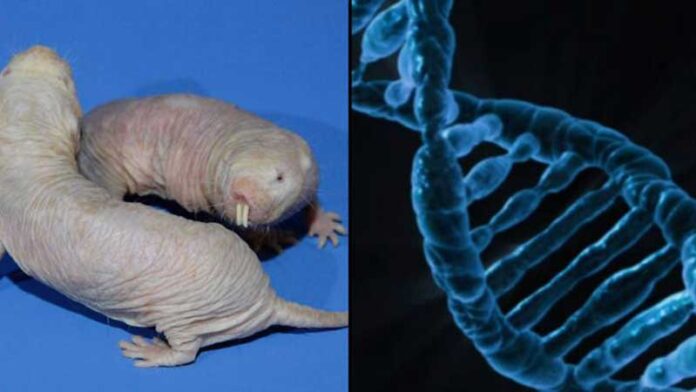The results of this experiment showed an amazing opportunity to disambiguate the secrets of aging and increase human lifespan.
The researchers transferred the longevity gene from the blind naked rat to the normal mouse, the results of which led to the improvement of the health and the increase of the life span of the normal mouse.
For years, scientists have been researching the longevity of naked rats and their strange resistance to age-related diseases.
In a research recently published in the journal Nature, the longevity gene transferred to normal mice led to a 5% increase in the average life span and improved health of the normal mice.
“The results of our experiments prove that longevity-extending mechanisms evolved in long-lived mammals can be used to extend the lifespan of other mammals,” said Vera Gorbunova, one of the authors of the paper.
Researchers managed to transfer into normal mice a gene responsible for the production of high-molecular-weight hyaluronic acid – the molecule responsible for the unusual resistance of naked rats to a variety of cancers.
In this study, by modifying the gene of normal mice, the scientists created the version of the hyaluronan synthase 2 gene of the blind naked rat, which is responsible for the production of the protein that produces hyaluronic acid.
Normal mice that received a copy of this gene showed greater resistance to chemically induced skin cancer.
The general health of the genetically modified mice also improved and they lived longer than normal mice, the scientists said.
These mice were also in better condition in terms of digestive health.
According to the scientists, these new results offer new hope for extending life and reducing inflammation in humans.
“We have now identified molecules that reduce the breakdown of hyaluronic acid, and it is elusive to test them in pre-clinical trials,” said Andrey Selivanov, one of the authors of the study.










